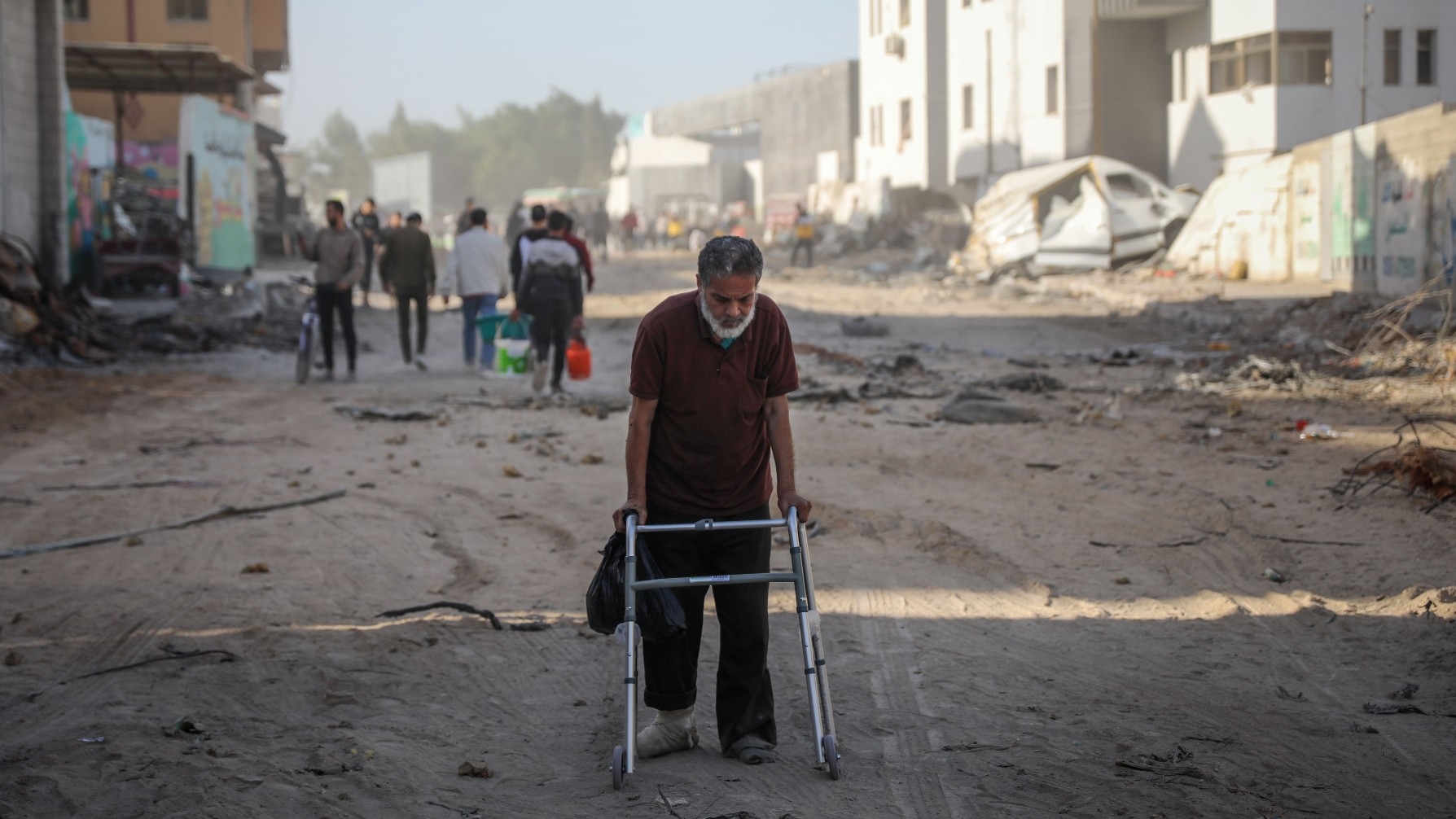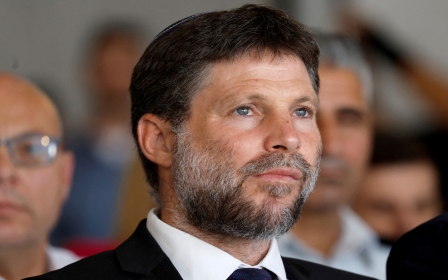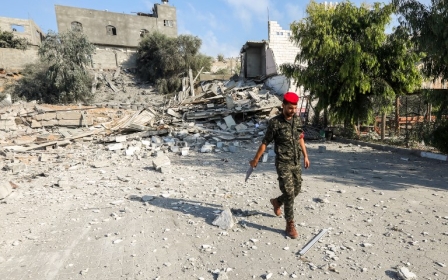Israel-Palestine war: Far-right Israeli ministers demand Netanyahu end Gaza truce

Far-right ministers in Israel's ruling coalition government have called on Israeli Prime Minister Benjamin Netanyahu to continue the war on Gaza, even as talks continue in Qatar over extending a temporary truce which is set to expire later on Wednesday.
In a warning to Netanyahu and his other coalition parties and members, National Security Minister Itamar Ben Gvir said that if Israel didn't continue its war with Hamas, his Otzma Yehudit Party would quit the government.
"Stopping the war = breaking apart the government," he said in a post on X, the social media platform formerly known as Twitter.
Later, Israel's finance minister, Bezalel Smotrich, told Netanyahu to spurn a ceasefire deal with Hamas as mediators - including Qatar, Egypt and the US - intensified efforts in Doha to reach a more lasting settlement to the conflict.
Smotrich said on X that broadening the current agreement was "not on the agenda, not even as a suggestion".
New MEE newsletter: Jerusalem Dispatch
Sign up to get the latest insights and analysis on Israel-Palestine, alongside Turkey Unpacked and other MEE newsletters
"There is no discussion about it [a ceasefire] at all. This is a plan to eliminate the State of Israel. We continue until absolute victory, God willing, and the destruction of the Nazis of Hamas," he added.
In an attempt to prolong the temporary truce to secure further prisoner releases, CIA director Bill Burns travelled on Tuesday to Doha, where he met with the head of Israel's Mossad spy agency, David Barnea, Qatar's prime minister, Sheikh Mohammed bin Abdulrahman al-Thani, and Egyptian officials.
Burns is pushing for what multiple US media reports say is a substantially longer truce and broader prisoner exchange that could see Israeli men and soldiers released by Hamas.
The Wall Street Journal reported that Doha was working on turning the truce into "a permanent ceasefire".
Far-right members of Netanyahu's coalition have repeatedly opposed the idea of a ceasefire and the release of any Palestinian prisoners beyond women and children, despite reports that Hamas was prepared to release all the soldiers it holds in Gaza in exchange for high-level Palestinian prisoners and a ceasefire deal.
The families of the Israeli captives, along with many ordinary Israelis, have backed the idea of releasing most Palestinian detainees if it means that the Israelis being held in Gaza will be released.
Follow Middle East Eye's live coverage for the latest on the Israel-Palestine war
But should Ben-Gvir follow through with his threat in the event of a potential ceasefire deal, his departure is unlikely to topple Netanyahu's coalition government.
An emergency government was formed after the Hamas-led 7 October attack, with the centrist National Unity Party, headed by former defence minister Benny Gantz, joining the coalition.
The new government means that even if both officials and MPs from their parties resigned in protest, Netanyahu's government could still survive.
Since the brazen 7 October attack, Israel's bitterly polarised political discourse has drastically changed.
Still, Netanyahu's approval ratings have steadily declined, with a poll conducted by Israel's Bar-Ilan University saying trust in the prime minister stood at a record low of four percent.
US Secretary of State Antony Blinken, who plans to visit the region this week, has said Washington would like to see an extension of the truce, the release of more hostages, and the delivery of more humanitarian aid to Gaza.
Speaking to reporters in Brussels, he said he also wanted to discuss postwar arrangements for Gaza, a subject on which the US, Israel and Arab countries are deeply divided.
Middle East Eye delivers independent and unrivalled coverage and analysis of the Middle East, North Africa and beyond. To learn more about republishing this content and the associated fees, please fill out this form. More about MEE can be found here.





